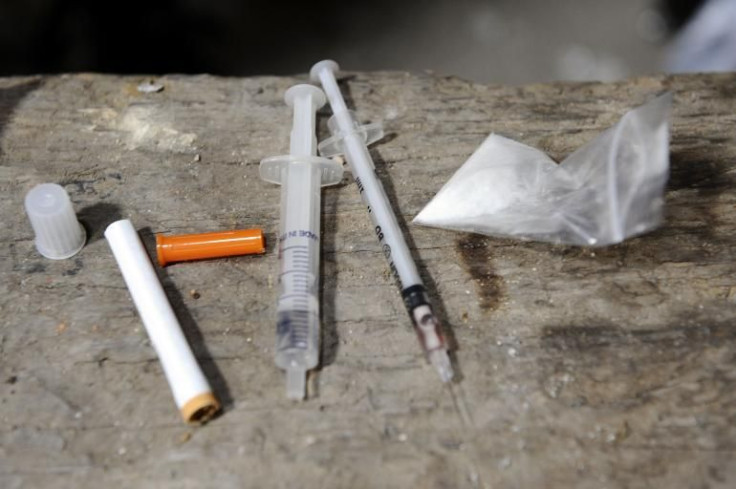Has Krokodil Spread To Ohio? First Suspected Case Of Deadly, Flesh-Eating 'Zombie' Drug Reported In Columbus

Krokodil -- the deadly flesh-eating drug from Russia that is believed to have arrived in the United States -- may have spread to Ohio. According to WBNS-TV, a homeless man told medics in Columbus he had used it.
“The patient had a large, open wound, and it is consistent with what we've been seeing, or the trend when people use this type of medicine," Deputy Chief Jim Davis of the Columbus Division of Fire said.
Krokodil, the Russian word for crocodile, is a synthetic opiate made from a mixture of codeine, iodine and toxins such as gasoline, industrial cleaning oil, lighter fluid and paint thinner. Users filter and boil ingredients together, then inject the drug into veins. The result is reportedly more powerful than heroin -- and cheaper. Its medical name is desomorphine.
"When it's injected into the vein, it causes initial skin tinting of a greenish color. The raised area of the skin looks like a crocodile. That's where it comes from," Davis said.
As WBNS-TV reports, the medical director of the Central Ohio Poison Center says there have been two other suspected cases, but neither of them were in Columbus.
"Our biggest issue with this is the fact that anybody who uses needles in some type of drug situation is highly suspected of other highly contagious diseases, such as hepatitis and HIV," Davis added.
Krokodil appeared in Siberia in 2002 before spreading to the rest of Russia by 2010. The drug causes the skin to become rough and scaly, leaving many with amputated limbs due to gangrene after the flesh rots.
“You literally start rotting from the inside out. It’s a horrific way to get sick,” Dr. Abhin Singla of Presence St. Joseph Medical Center in Joliet, Ill., told the Chicago Sun-Times. “Intensive treatment and skin grafts are required, but they are often not enough to save limbs or lives.”
Krokodil is believed to have spread to the United States, with cases being reported in Illinois, Arizona and Oklahoma.
The Drug Enforcement Agency, however, says it hasn’t seen any confirmed cases of the "zombie drug" in the United States. Jack Riley, the agent who heads the DEA’s Chicago office, told the Chicago Tribune that 200 DEA agents have made finding krokodil a top priority.
"We have run quite a few buys in the city and suburbs," Riley said "What the lab tells us is it's just heroin."
© Copyright IBTimes 2024. All rights reserved.











